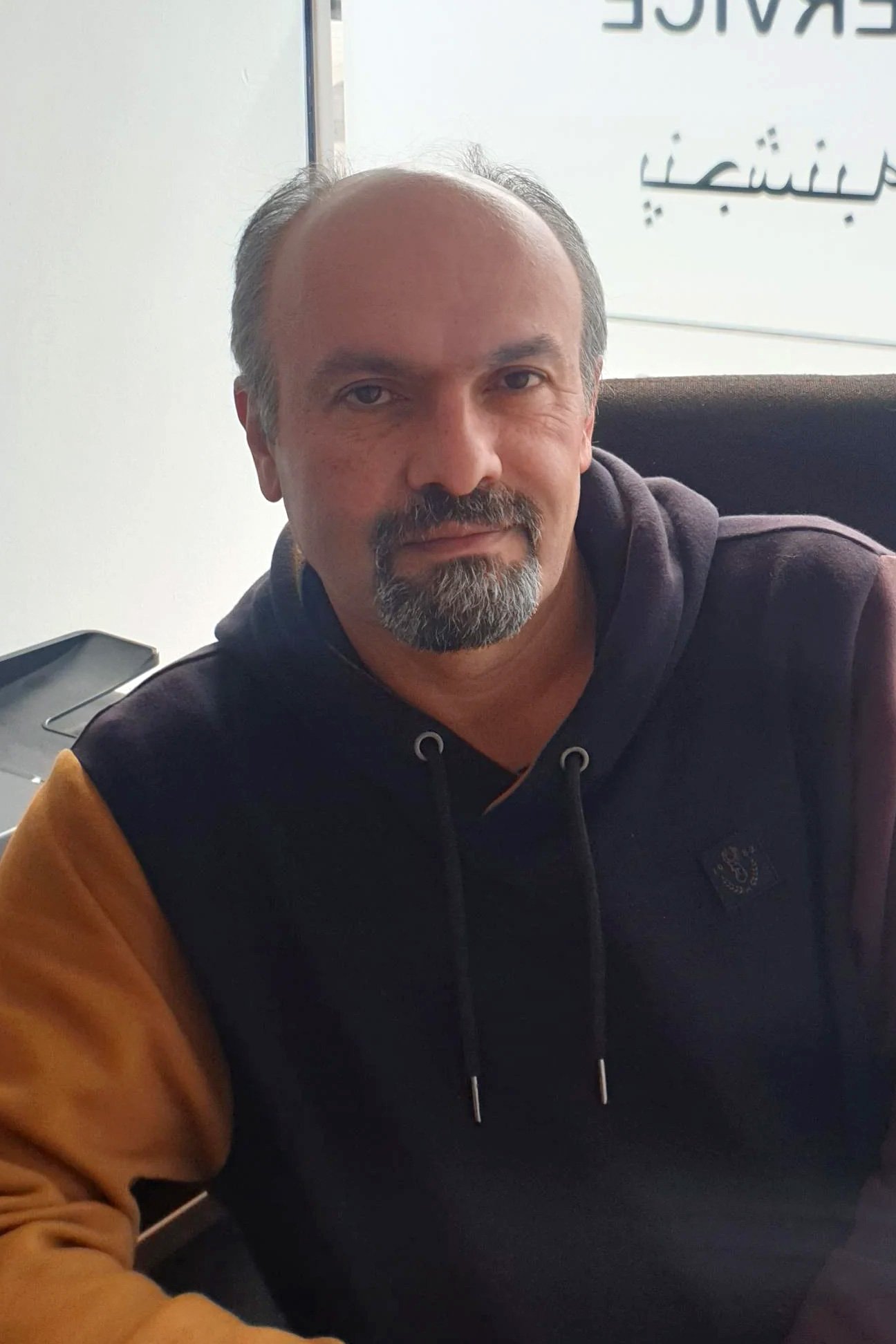
Benham Rafiei (Director, Mentor, Coach) Lloyd-Davies Associates Ltd
Interviewing Behnam Raifiei was fascinating. To get an insight into the journey of being an Iranian who had to seek asylum, had really challenging circumstances in his homeland, and came away and has built a life over the last 14 years in the UK. Wrestling with cultural differences, language differences, system differences from where he was to where he is. Through the journey, significantly driven by his faith, he has attempted to contribute to the community around him and help those that start from a minority position. An interesting conversation!
Interview by Don Phillips October 2024
Building Behnams Bridge within Lloyd-Davies Associates supporting Asylum Seekers and Refugees who have gained UK nationality?
Interview by Don Phillips October 2024
Who is Behnam, and what makes him the right person to lead a business supporting asylum seekers and refugees in the UK?
Behnam brings a wealth of experience, insight, and a deep sense of mission to his work with asylum seekers and refugees. Having spent the last 13 to 14 years in the UK, Behnam has devoted his life to helping individuals like himself who have come to the UK in search of safety and opportunity. His background in Iran as a skilled anaesthetic nurse and as a disaster management professional—working with displaced people during earthquakes and floods—equipped him with a strong foundation in both medical and humanitarian fields. When he arrived in the UK, however, Behnam faced the stark reality that his qualifications and experience didn’t transfer easily. Despite his fluency in English, he found his first job as a delivery driver, an experience that showed him firsthand the challenges and frustrations skilled refugees face in making a living in their fields of expertise.
Over the years, Behnam continued to volunteer, taking on work through the Persian Cultural Charity in Derby and Stockport Baptist Church, where he offered guidance on navigating UK systems like social benefits, housing, and health services. Through this hands-on work, he witnessed the common challenges refugees face in their journey toward full integration. They often start in low-skilled jobs due to the barriers in recognising their qualifications and the lack of networks that can connect them with the right opportunities. Many skilled professionals end up in industries like food service simply to survive, even when they are capable of contributing to much higher-value industries.
Behnam saw that the obstacles are not just about adjusting to a new language or system but about accessing the right networks, capital, and business knowledge that would allow these individuals to build sustainable livelihoods and contribute to the economy meaningfully. This realisation led him to envision “Behnam’s Bridge”—a venture that would not only support asylum seekers and refugees in navigating daily life but empower them to create and grow enterprises.
How does Behnam’s vision differ from traditional refugee support programs?
Traditional support often focuses on immediate needs—securing benefits, finding housing, and getting medical care. While these are essential, Behnam recognises that asylum seekers and refugees need more than just support to survive; they need tools to thrive. Having spent years researching these needs, he understands the real gap lies in business knowledge, access to networks, and investment opportunities. Refugees often lack capital, face complex processes in accessing credit, and may not know the UK’s systems of business structures, taxation, or tendering. Behnam’s approach is to address these specific gaps by:
- Building a network of culturally aware investors to solve capital issues.
- Providing education and support in setting up and running businesses, navigating company structures, and managing taxes.
By offering a pathway for refugees to participate in enterprise, Behnam’s Bridge would bridge the divide between refugees and local communities, allowing them to tap into sectors beyond cash-and-carry businesses and to venture into fields like construction, hospitality, and technology.
What are Behnam’s plans for creating a culturally appropriate business support system?
Recognising the need for sensitivity in each community, Behnam aims to tailor his support by understanding the unique cultural and social barriers that different refugee groups face. For instance, he has identified communities like the Afghan, Ethiopian, Somali, and Iranian populations in Manchester and Stockport that are eager for support. By working closely with these groups and understanding their values and strengths, Behnam can help them enter business sectors that match their skill sets and interests. His background in community-building and his existing networks with over 5,000 followers on Iranian social media channels provide him with the platform to reach these individuals and offer them meaningful support.
Why does Behnam believe that communities and enterprises, rather than the government alone, are best suited to support refugees’ success?
Behnam sees community-led and enterprise-focused initiatives as essential complements to government programs. He understands that while government support helps with immediate needs like Universal Credit, job-seeking, and healthcare access, these solutions only go so far. True integration requires moving beyond survival to creating sustainable, meaningful roles in the community. Enterprise offers a unique pathway for skilled refugees to contribute in impactful ways, giving them a sense of purpose, independence, and identity.
Having helped hundreds of people over the years, Behnam knows the difference it makes when refugees have access to the right networks and mentors. He envisions a thriving ecosystem where asylum seekers and refugees can overcome isolation, connect with local communities, and ultimately build businesses that benefit everyone. Through this work, Behnam believes he can help turn the potential of refugees into a tangible, positive force for the UK economy and society.
